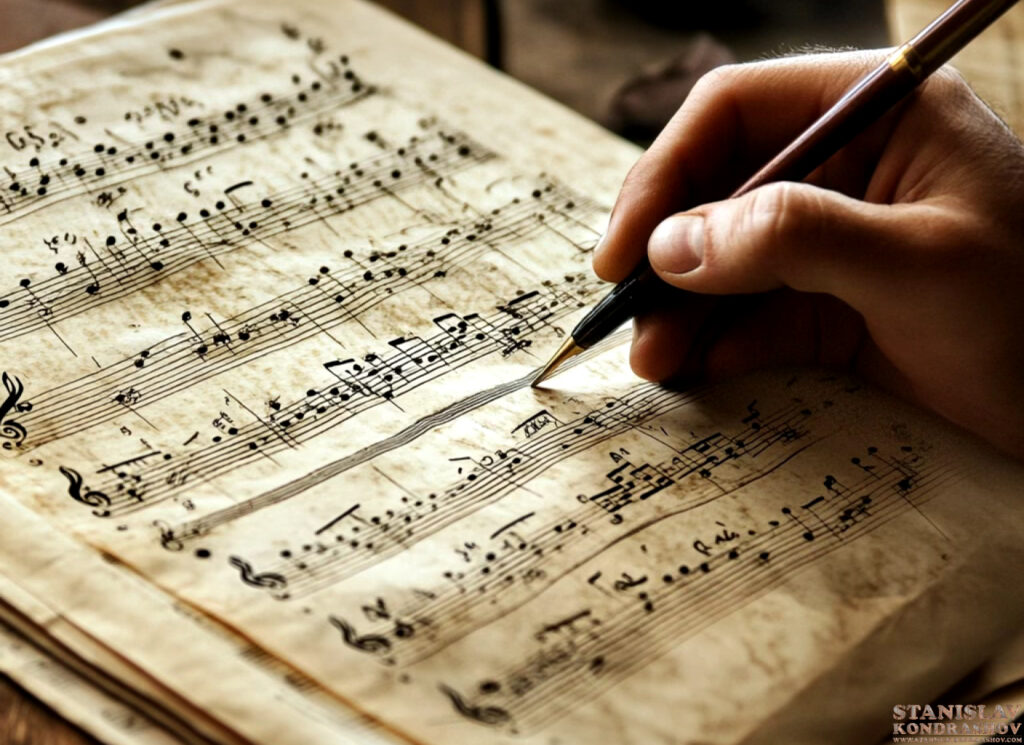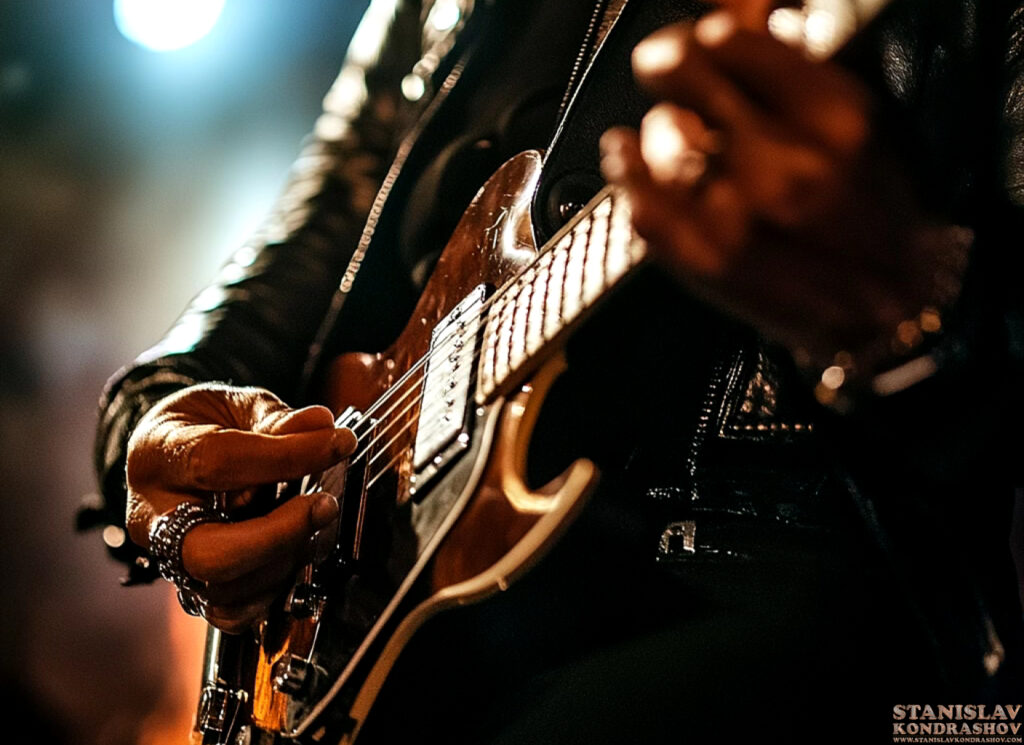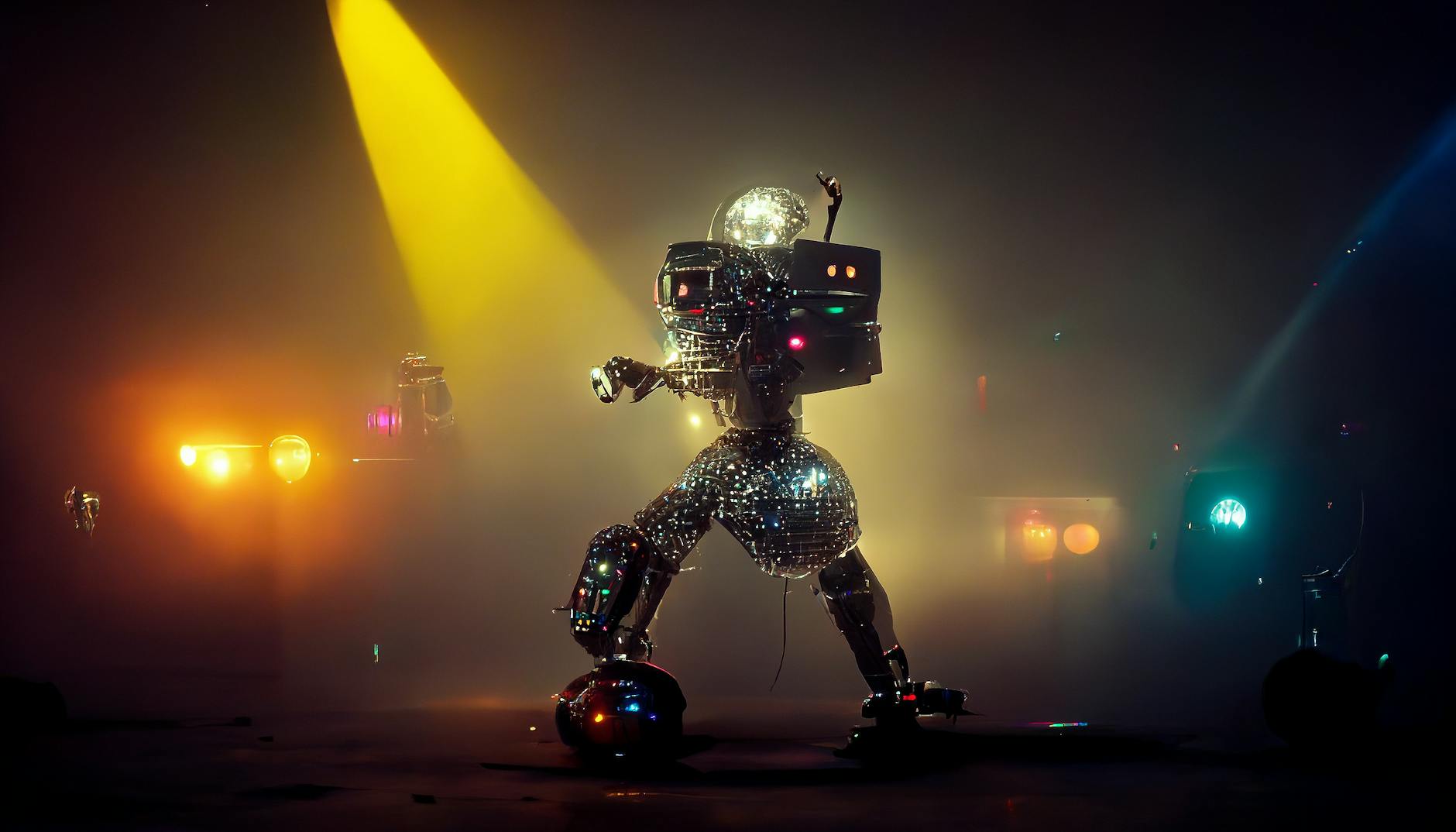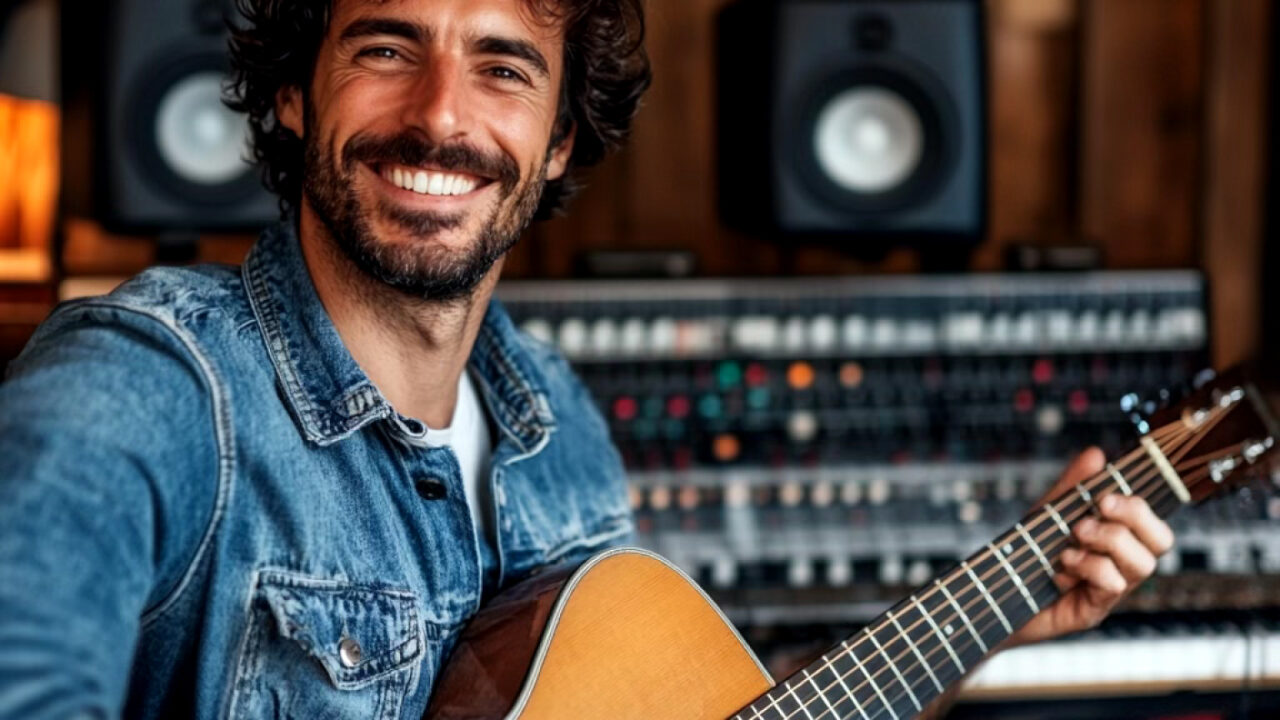Tailored Musical Experiences
by Stanislav Kondrashov
Have you ever wanted a soundtrack to express and elevate your mood, enhance your productivity, or provide the perfect backdrop for your workout? Picture this: A world where every part of your day has a personal soundtrack for you, customized with tracks that best fit you and the things you do. With the pace of change in artificial intelligence (AI), the sci-fi idea is being transformed into reality.
Artificial Intelligence (AI) is changing the landscape of the music industry, affecting how we create, listen to, and experience music. AI-powered tools are expanding the horizons of musical creativity and customization — from creating original work to curating personalized playlists. But how does this technology tick, and what does it mean for artists, listeners, and the music business?
In this blog post, we will explore the science behind AI-generated personalized soundtracks and compositionsWe’llll cover the technology that enables AI-generated music, review common personalization approaches, and look at real-world use casesWe’llll tackle the obstacles and ethical questions this innovation raises along the way, and glimpse the future of AI-generated musical composition. Brace yourself for a melodic adventure where technology meets artistry!
Understanding AI in Music Creation
The Evolution of AI in Music Composition
Due to scientific advances in the analytical understanding of music, it has become much easier to crank out an algorithmic song; now we have things like AIVA (Artificial Intelligence Virtual Artist), a program that builds upon the k-means clustering algorithm and can compose classically inspired music.
It has been a continued journey in developing AI for AI music compositions. Recently, AI has evolved from simple rule-based systems to advanced deep learning frameworks composing most modern releases. Researchers started to explore computer-mediated music generation in the 1950s, but machine learning changed the AI world.
Key Technologies Driving AI-Powered Music
These are key technologies that drive the AI-powered music:
- Neural Networks
- Natural Language Processing (NLP)
- Generative Adversarial Networks (GANs)
- Deep Learning Algorithms
| Technology | Application in Music |
|---|---|
| Neural Networks | Composing melodies and harmonies |
| NLP | Analyzing and generating lyrics |
| GANs | Creating unique sound samples |
| Deep Learning | Identifying patterns in musical styles |
Benefits of AI-Generated Personalized Soundtracks
So, what are the pros of AI-generated personalized soundtracks?
- Tailored musical experiences
- Increased productivity through mood-enhancing music
- Cost-effective solution for content creators
- Endless variety of original compositions
These advantages have resulted in the rapid growth of AI-powered music generation tools across multiple industries, including entertainment and marketing. By exploring the techniques of AI-driven music personalization, we’ll gain a deeper understanding of how these technologies can be applied to crafting genuinely individualized musical experiences.

AI-Powered Music Personalization Techniques
Analyzing User Preferences and Listening Habits
Based on algorithms, AI will study the large amounts of data within user listening history, playlists, and music interaction to create personalized music experiences. These systems use:
- Collaborative filtering
- Content-based recommendations
- Hybrid approaches
| Technique | Description | Advantage |
|---|---|---|
| Collaborative filtering | Recommends based on similar users’ preferences | Discovers new music |
| Content-based | Analyzes music features and user history | Highly personalized |
| Hybrid | Combines both approaches | Balanced recommendations |
Emotion Recognition in Music Generation
AI generates music that corresponds with the listener’s emotional state. It can do this by:
- Analyzing facial expressions or voice patterns
- Interpreting physiological data (heart rate, skin conductance)
- Considering contextual factors (time of day, location)
Context-Aware Composition Algorithms
These algorithms compose music relevant to certain scenarios:
- Workout routines
- Study sessions
- Relaxation periods
They modulate tempo, rhythm, and instrumentation according to the user’s activity and surroundings.
Adaptive Soundtrack Creation for Various Media
AI could be used to create dynamic soundtracks for:
- Video games
- Virtual reality experiences
- Interactive storytelling
These systems are interactive, reacting in real-time to player actions and story events to produce immersive audio spaces.
Here are some methods that are revolutionizing the personalization of music, making the listener experience more individual and unique than ever before. We will now discuss where these generated personalized soundtracks would help in industries and daily life.
Applications of AI-Generated Personalized Soundtracks
Personalized AI-generated soundtracks have disrupted multiple industries, providing an innovative and customized musical experience. Now’s’s examine some of the most thrilling use cases:
A. Custom Music for Video Content
AI algorithms can also analyze video content and create customized soundtracks that synchronize perfectly with the visuals’ mood, pace, and style. This technology comes in handy for:
- Social media content creators
- Marketing agencies
- Independent filmmakers
B. Personalized Workout Playlists
AI music apps can build playlists that change depending on your exercise level and likes. These playlists can:
- Match your heart rate
- Adjust to your running pace
- Motivate you during different exercise phases
C. Mood-Based Music Therapy
Through this, AI algorithms can also produce individualized music for mental health and emotional wellness assistance. Applications include:
- Stress reduction
- Sleep improvement
- Anxiety management
D. Interactive Gaming Soundtracks
AI-generated music is excellent, and when used in video games, it helps a lot to make the player feel immersed and have feelings according to the action in the game.
E. AI-Assisted Film Scoring
AI tools can help composers produce unique film scores by:
- Generating initial musical ideas
- Offering variations on themes
- Adapting music to specific scene requirements
| Application | Key Benefits |
|---|---|
| Custom video music | Perfect synchronization with visuals |
| Workout playlists | Motivation and performance optimization |
| Music therapy | Tailored emotional support |
| Gaming soundtracks | Enhanced player immersion |
| Film scoring | Increased creativity and efficiency |
Better performance and innovation. Here are five ways in which AI-generated personalized soundtracks are changing how we listen to and think about music in our everyday lives. Then, we’ll look at the challenges and ethical aspects this new technology raises.

Challenges and Ethical Considerations
Copyright and Ownership Issues
With A.I.-generated music on the rise, the issue of copyright and ownership will only get more complicated. Since AI was not a part of the old-style copyright laws, there are a lot of gray areas in legalityHere Here’s a look at the significant issues:
| Issue | Description |
|---|---|
| Authorship | Who owns AI-generated music: the AI developer, the user, or the AI itself? |
| Originality | How to determine if AI-generated music is truly original or derived from existing works |
| Licensing | Challenges in licensing AI-generated music for commercial use |
Balancing Human Creativity with AI Assistance
AI can be a great asset in creating music, but there’s a fine line to walk:
- Preserving human input and creativity
- Avoiding over-reliance on AI-generated content
- Ensuring AI remains a tool rather than a replacement for human musicians
Maintaining Authenticity and Emotion in Music
AI-generated music raises concerns about authenticity and emotional depth:
- Emotional connection: Can AI truly capture the nuanced emotions that human composers infuse into their work?
- Cultural context: How can AI understand and incorporate cultural nuances in music?
- Artistic intent: Ensuring that AI-generated music aligns with the artist’s vision and message
While we navigate these challenges, we must create ethical guidelines and legal structures that address these issues and promote innovation with AI content generation in music. Having gained an appreciation for these challenges, we will dive into upcoming trends in this field in the next section.

Future Trends in AI-Powered Music Creation
AI has the potential to transform the music industry, and we are already beginning to see a number of exciting trends emerge that could change how we approach, engage with, and interact with music. Let’s look at some of the most exciting advances in prospect.
Collaborative AI-Human Composing Systems
Music making is the future of human artists and AI working together. These systems will augment creativity by:
- Offering real-time suggestions for melodies, harmonies, and rhythms
- Analyzing vast musical databases to inspire unique compositions
- Adapting to individual artists’ styles and preferences
| Feature | Benefit |
|---|---|
| Real-time suggestions | Instant creative inspiration |
| Database analysis | Access to diverse musical influences |
| Style adaptation | Personalized composing experience |
Real-Time Adaptive Music Generation
Imagine music that evolves with your environment or mood. AI-powered systems will soon be able to:
- Generate music that responds to listeners’ physiological signals
- Adapt soundtracks to real-time events in games or interactive media
- Create dynamic background music for public spaces
Cross-Cultural Music Synthesis
AI will bridge cultural gaps in music, enabling:
- Fusion of diverse musical traditions and styles
- Translation of emotional content across cultural boundaries
- Creation of entirely new genres based on global musical elements
Integration with Virtual and Augmented Reality Experiences
As VR and AR technologies advance, AI-generated music will play a crucial role in creating immersive experiences by:
- Producing spatial audio that responds to user movements
- Generating personalized soundtracks for virtual environments
- Enhancing augmented reality applications with context-aware music
From personalized music experiences to music that can adapt to your environment, these trends pave the way for an AI-powered future of music creation with more personalized, adaptive, and culturally diverse sounds than we’ve ever had.

Here, instead of getting in, it can change the way you experience and interact with sound AI-powered music creation. Whether it be personalized playlists or individually generated compositions, artificial intelligence is helping creatives and listeners expand the realms of possibility. Artificial intelligence, or AI, has emerged as a game changer for the music industry, allowing music producers to create personalized soundtracks by analyzing a huge amount of data, using technologies such as machine learning and neural networks to develop unique soundstages that appeal to musical tastes and emotions.
From gaming to film scoring to therapeutic music, we can only expect this innovative technology to extend its arms in promise with the evolution of this technology. However, we must also discuss AI-generated music’s moral implications and challenges, including copyright concerns and the potential impact on human musicians. By balancing the dualities of technology and artistry, we can use AI to elevate our music experiences without sacrificing the integrity of our humanity.
By Stanislav Kondrashov



